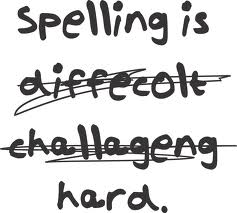There are 26 letters in the alphabet, which make about 44 sounds individually and combine into a possible 577 letters and sounds. This can be intimidating for even the most confident child. Spelling is not quite as simple as understanding what sound each individual letter makes, a child also needs to understand what sound it makes when combined with other letters in a variety of situations. Here are some useful games and spelling strategies for kids.
- Get a list of the sight words that your child’s teacher uses, print them on pieces of paper and place them around the house on the objects that they designate.
- Print the action words used by your child in their daily life, such as walk, run, laugh, etc. Review these with him and have him act them out, then dictate the words to your child and have him write simple sentences using the action words.
- Do the same thing for words with similar endings or beginnings or words that differ by only one vowel in the middle, such as dog/dig, live/love and has/had. These are specific problem words.
- Get a box of alphabet cards with lowercase letters and each night during homework sessions, use them to spell problem words.
- Use objects such as flour, sand, clay or Lego to ‘write’ new words as this allows the individual to utilize his/her creative outlet and accomplish an otherwise frustrating task. They will develop mental pictures, concepts or ideas using the “hands-on” materials.
- Write spelling words on different coloured pieces of paper or in different coloured inks according to the word, for example, a young child would have action words on blue and nouns on red paper and older children would have ‘ie’ words on green paper and ‘ei’ words on yellow. The different colours provide extra visual stimulation which is very helpful.
- Write out two lists of the spelling words and play pairs with the words or even snap, with your child having to read the word when he matches a pair
- Use mnemonics to teach unusual spellings, such as:
- Because – Bake Every Cake And Use Six Eggs.
- Said – I said, Sally Ann Is Dancing.
- Again – Again, Gorillas Appear In Nighties.
- Friend – I fried my friend and that’s the end
- Could – Can Oliver Understand Long Division
- Rhythm – Rhythm Has Your Two Hips Moving
- Group together word families, which are words that share certain visual and auditory characteristics as they become easier to learn and spell if they are taught at the same time.
- Play games such as Scrabble, Boggle etc to help with spelling.
- Go outside and practice spelling words on the bricks with chalk, or write on the wall with a paintbrush dipped in water.
- Make up words from the number plates on cars


